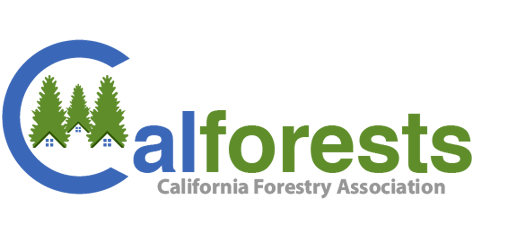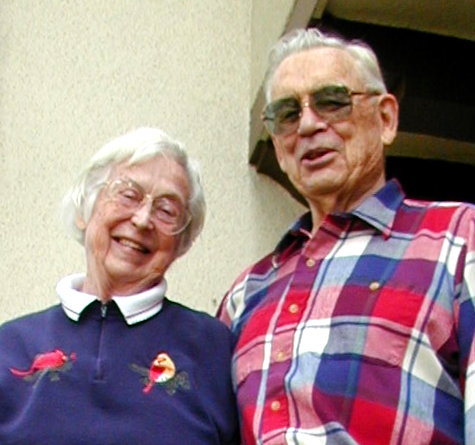
The George and Vi Craig California Forestry Association Scholarship Fund
Deadline: March 30, 2022
Purpose
The George and Vi Craig California Forestry Association Fund is an endowed fund managed by the Regents of the University of California. It was set up to benefit students studying Forestry and Natural Resources (FNR) at the University of California, Berkeley. The payout from the endowment may be used to provide scholarships to individual students and/or pay for transportation or instructional equipment and material costs associated with field instruction in courses that support the FNR degree program. These funds are intended to increase field experience opportunities for students in the FNR program.
Criteria
Student recipients of scholarships shall be those whose study and/or research focus is on the management of forests. Scholarship recipients should demonstrate a high level of academic performance, leadership potential and interest in a professional career in private industry.
Selection
The forestry faculty will identify and select the scholarship recipients in consultation with the California Forestry Association. The Dean and faculty will also identify the most critical needs related to providing field experiences for students in the forestry and natural resources degree program in consultation with the forestry faculty.
The number, amount and timing of all awards will be contingent upon available funds, qualified students, and the nature of the forestry program's current needs for field experience.
Past George and Vi Craig California Forestry Association Award Recipients
- 2013-2014
- Elizabeth Ebert
Jason Hoi Mai - 2014-2015
- Sophia Lemmo
Connor Williams - 2015-2016
- Sophia Lemmo
Noam Knopf Boyer - 2016-2017
- Brady Connor
Kat Pauloski
Jacob Levine - 2017-2018
- No awardee
- 2018-2019
- Funds were allocated to ESPM 182: Forest Operations Management to cover course supplies, student food, and lodging.
- 2019-2020
- Adam Taylor
- 2020-2021
- Hudson Northrop
Sabrina Chui

[image caption]
George Craig Biography and CFA History
The WTA Board of Directors initiated the George and Vi Craig Western Timber Association Scholarship in honor of their past 23 years of service and their retirement with a $12,000 contribution. Mr. Craig was emphatic that Vi's name always be included on the Scholarship, as both were always considered equally important to the success of Western Lumber Manufacturers Association (WLMA) and later Western Timber Association (WTA). The funds were given to UC Berkeley to hold and distribute, with the assistance from a WTA nominating committee. Mr. Craig agreed to change the name to The George and Vi Craig California Forestry Association Scholarship when that Association became the successor to the Western Timber Association.
Each recipient should understand that this is more than money and a piece of paper. It stands for the ideals of two honest, dedicated people who cared about others and who worked diligently on behalf of the forest products industry.
George graduated from UC Berkeley School of Forestry in 1939. He obtained valuable background and training with three seasons as a logger, a period as a mill hand and dry kiln operator and service in the South Pacific/Philippines as intelligence officer for a squadron on a small aircraft carrier and was in the middle of one of the most important engagements of World War II- the Battle of Leyte Gulf.
Beginning his first professional job in 1946, three assignments spanned the next four years; investigator for a state Senate Forestry Committee, member of the state forester’s staff and forest engineer for the Western Pine Association. These years bear the fingerprints of George’s early influence through a written and published report on "Forestry Conditions In California", editing of “The Redwood Forest Handbook” and writing most of “The California Pine Region Forest Handbook”.
To supplement his state salary, George wrote articles on weekends for The Timberman, an international trade journal. In 1950, he became their associate editor for seven years, writing and photographing forestry, logging and sawmill stories from Oregon to New Orleans.
In 1957, George was asked to take over the leadership of Western Lumber Manufacturers’ Association whose member firms were dependent upon national forest timber for their resources. With just a secretary for staff, George dealt with all aspects of U.S. Forest Service timber sales-policies, budgets, allowable cut, timber appraisals, contracts, disputes and appeals. When George retired in 1980, he had five professional foresters on staff, one of whom was an attorney.
All correspondence with the Forest Service, congress and other groups were reproduced and distributed. His mailing list included Forest Service administrators at all levels, several forestry schools, and members of congress. They also received copies of many journals, describing timber issues needing attention. Those early works can be found on file with the Forest History Society.
Because early written association work was copied with a mimeograph machine, they were fondly referred to by Forest Service and others as "Craig O'grams". Everyone respected George's work as factual and instructive.
With representatives of other regional and national associations, George led some major projects, including a complete revision of the Forest Service timber sale contract in the mid-1960’s and a joint Forest Service/industry appraisal review. The association spent a large amount of time on Wilderness proposals, Northern Spotted Owl and other issues that were critical in maintaining a sustainable yield from our national forests.
George Craig’s consulting work has been highly varied: A member of President Reagan’s Transition Team; rewriting a 50-year timber contract in Alaska; a feasibility analysis of biomass for generating electricity; developing a means for equitable extension of timber contracts in a deep recession; comparing the Forest Service’s Southern and Western appraisal practices; critically reviewing government reports on the “below cost” timber issue; writing a book ”The Spotted Owl and Wise Forest Use”; developing a new stumpage rate adjustment procedure; and testifying to Congress on timber appraisals in Alaska. George also taught the senior UC Berkeley Forest Management course in 1981 and 1982.
In a “Member Profile” for The Consultant (1992) George was quoted as in part: “Writing has been important to me. Doing it well takes much effort but pays big dividends. Much good writing is the product of rewriting. My struggles to communicate information and ideas effectively commonly lead to an enlarged understanding of the issues and occasionally to new ideas. Besides being an aid to clear thinking, writing has brought discipline essential to the maintenance to credibility. Writing has expanded my influence concerning matters I consider to be important. Writing has helped me to enjoy a good life.”
In admiration of his concise, accurate work, Bill Dennison once suggested to George that he must be a "fast reader". His reply was, "No, I am a slow reader, but a fast writer." Writing, critical thinking and a direct approach to many issues over his career are some of the reasons that George Craig will long be remembered as one of the most respected leaders in the forest products industry.

